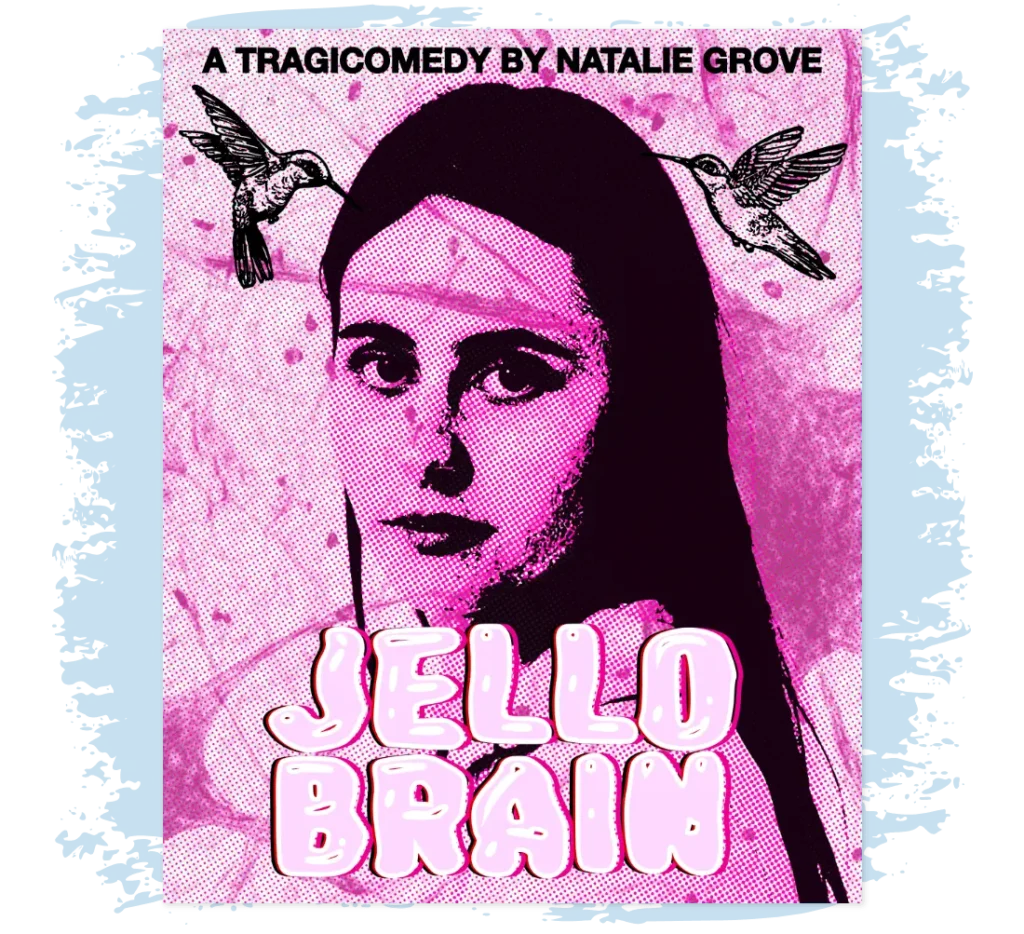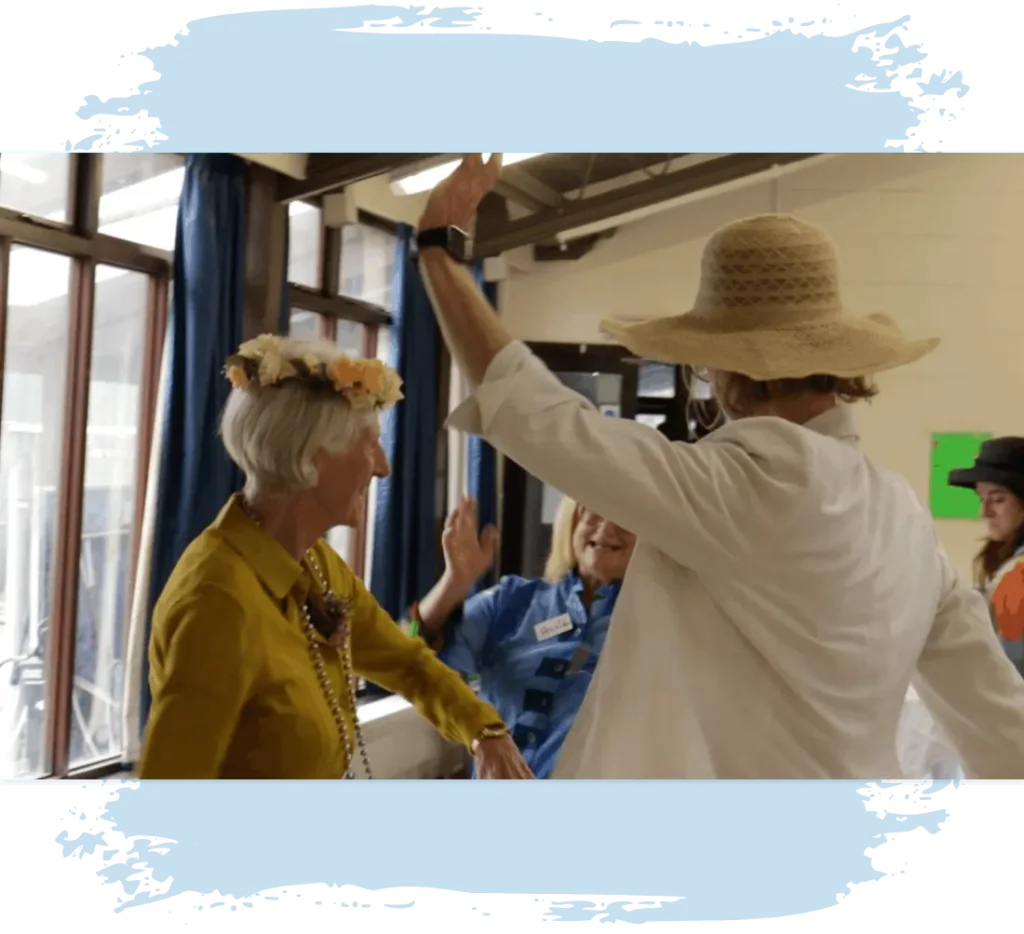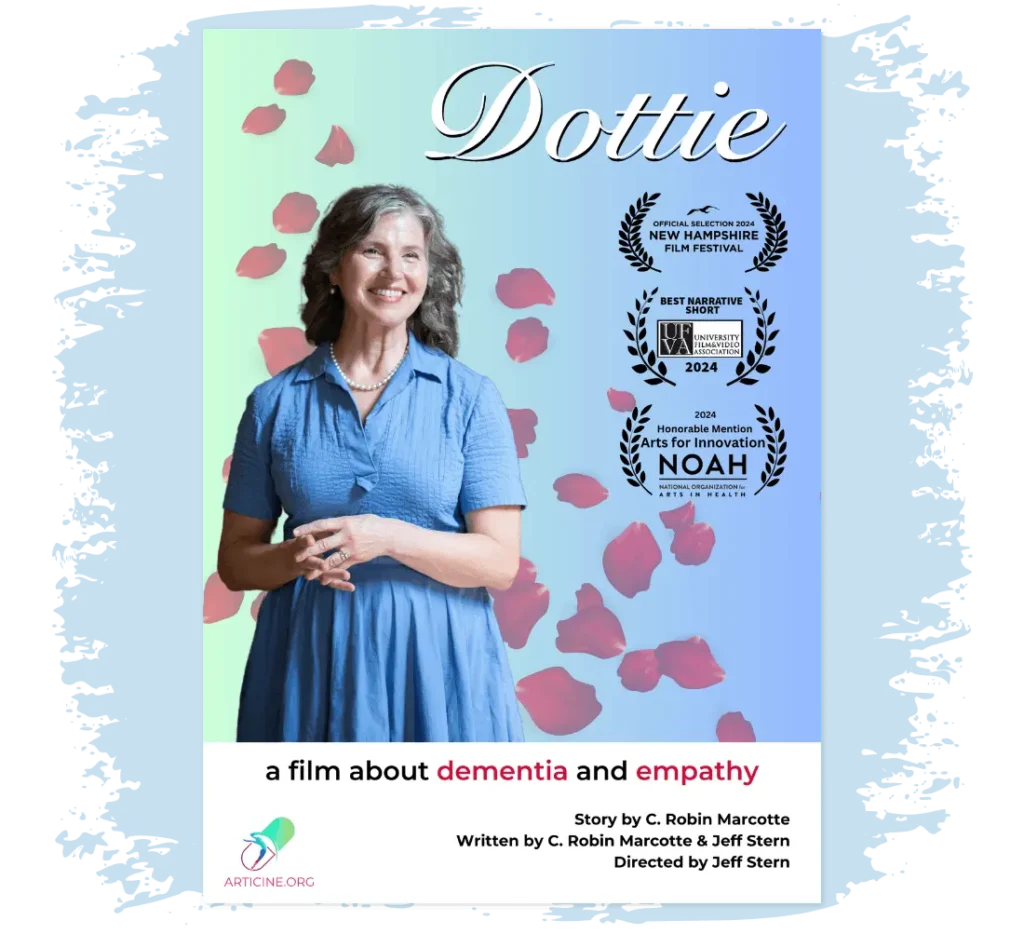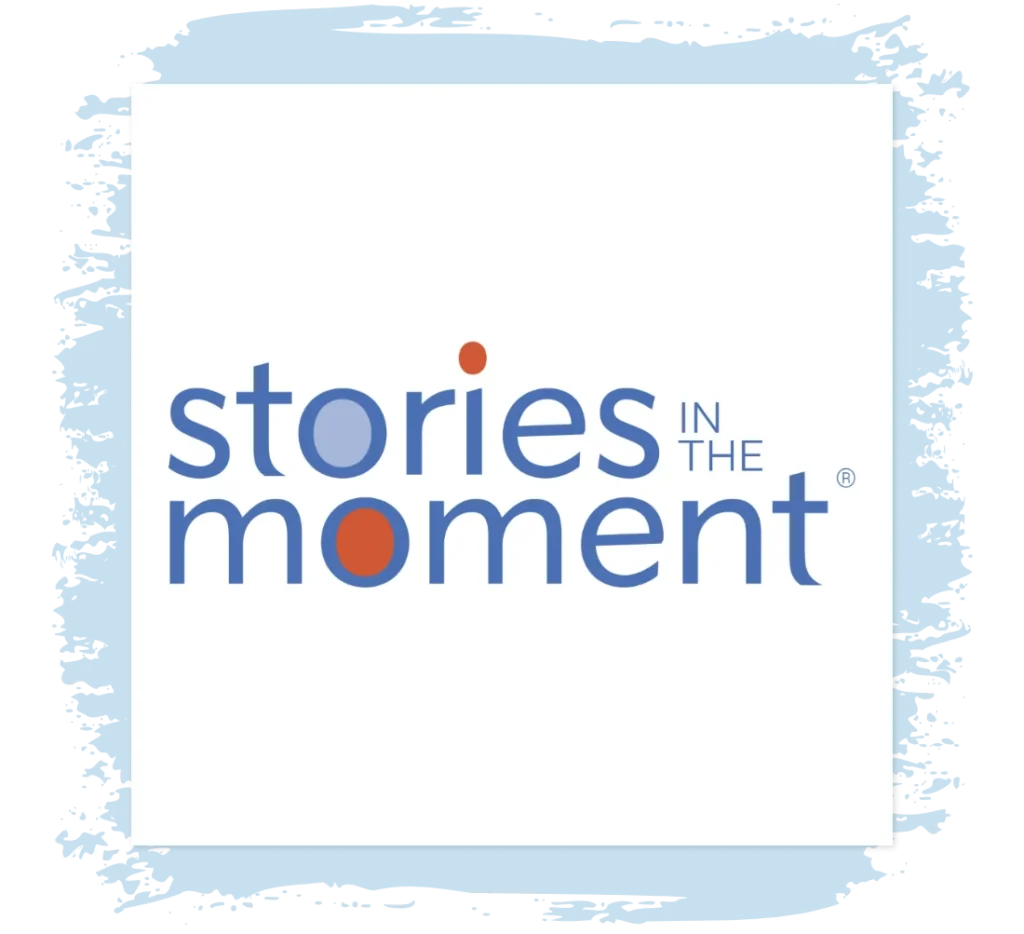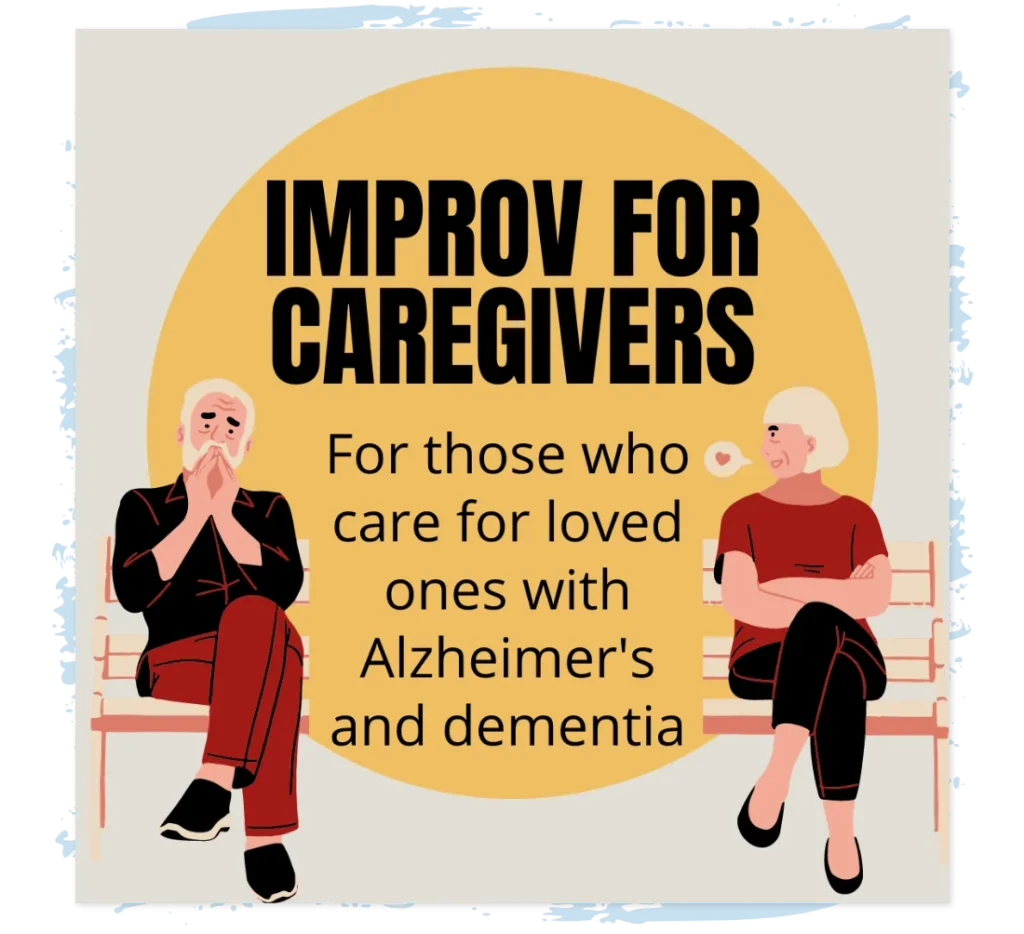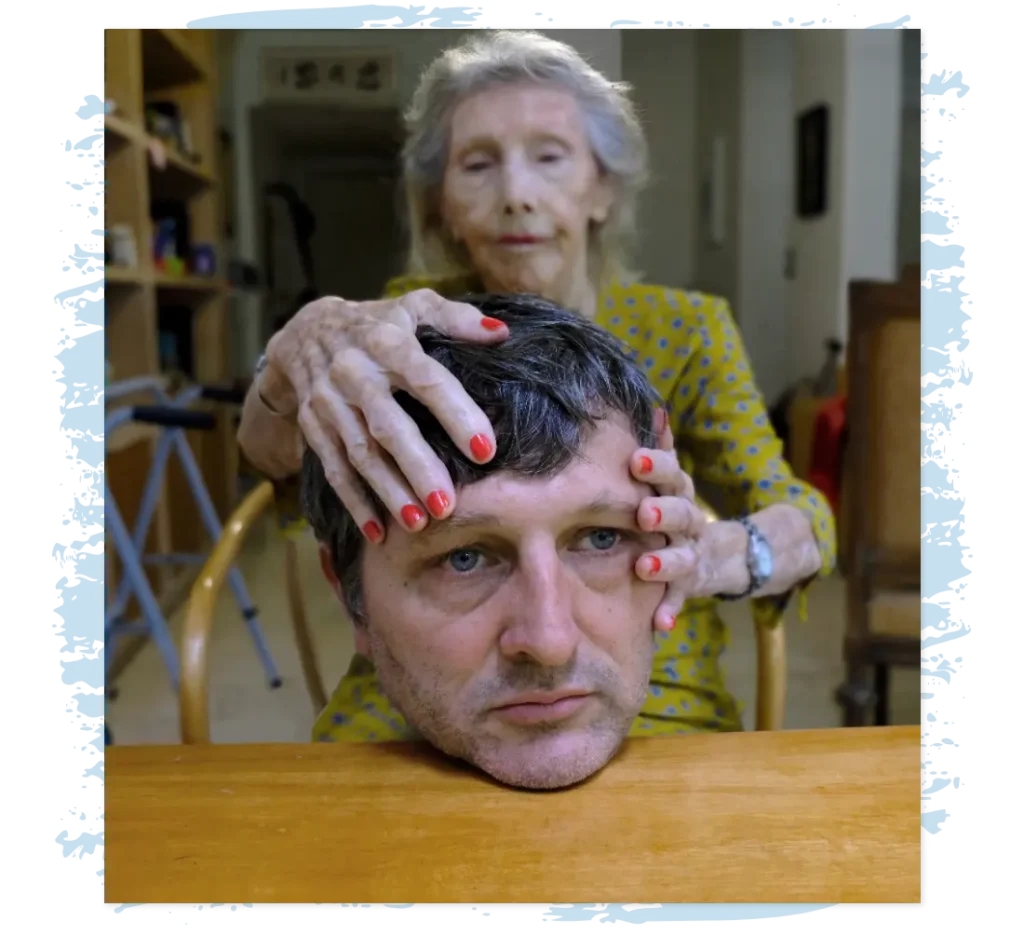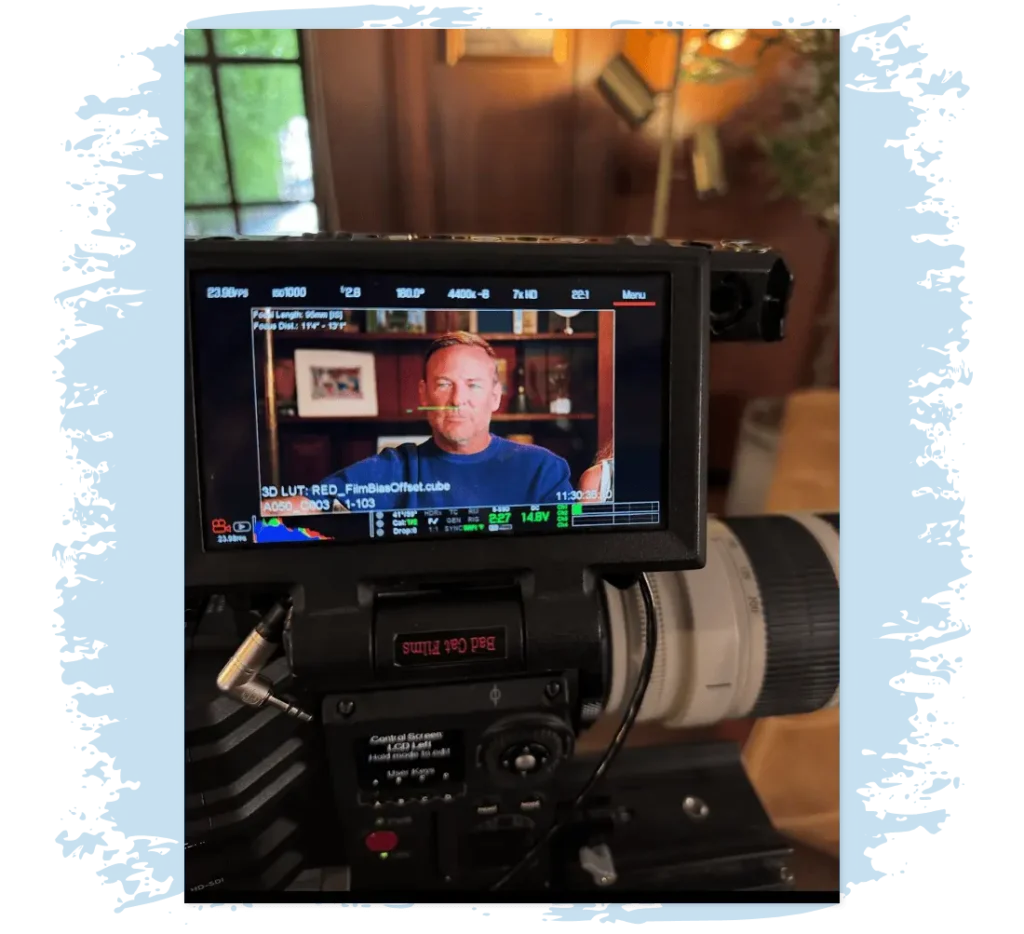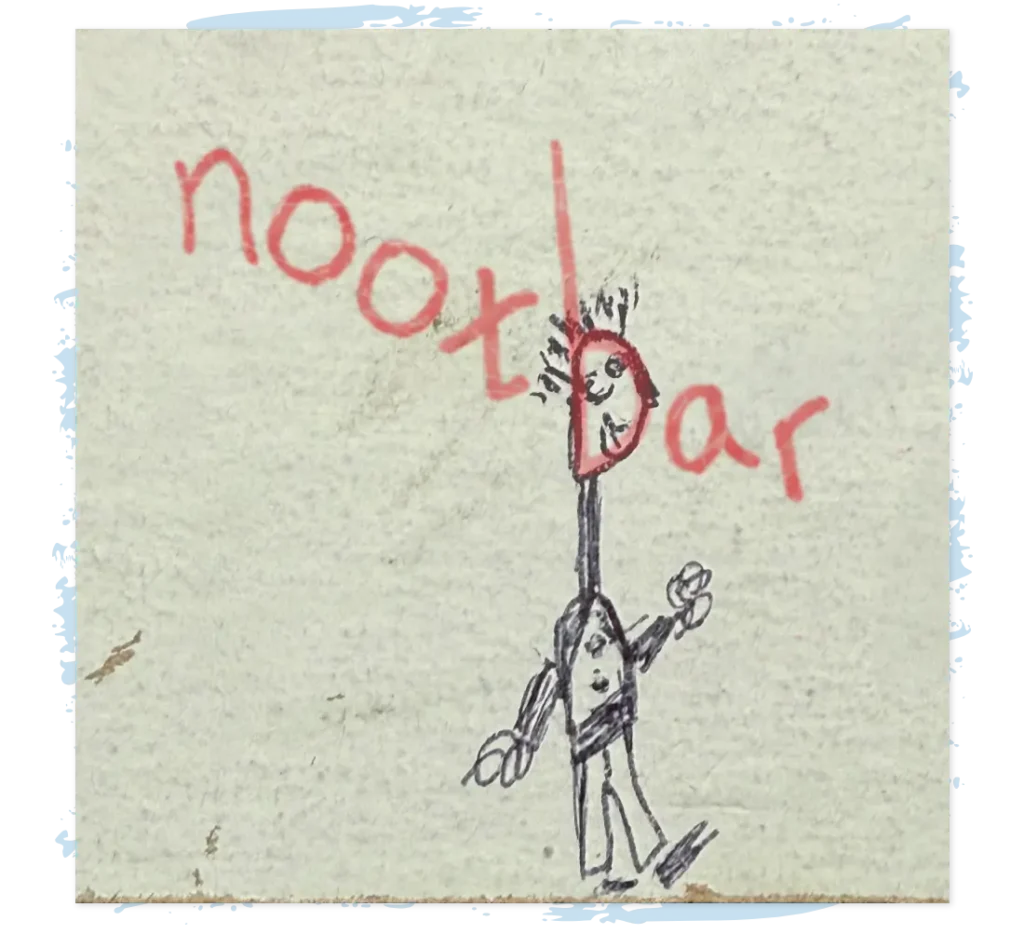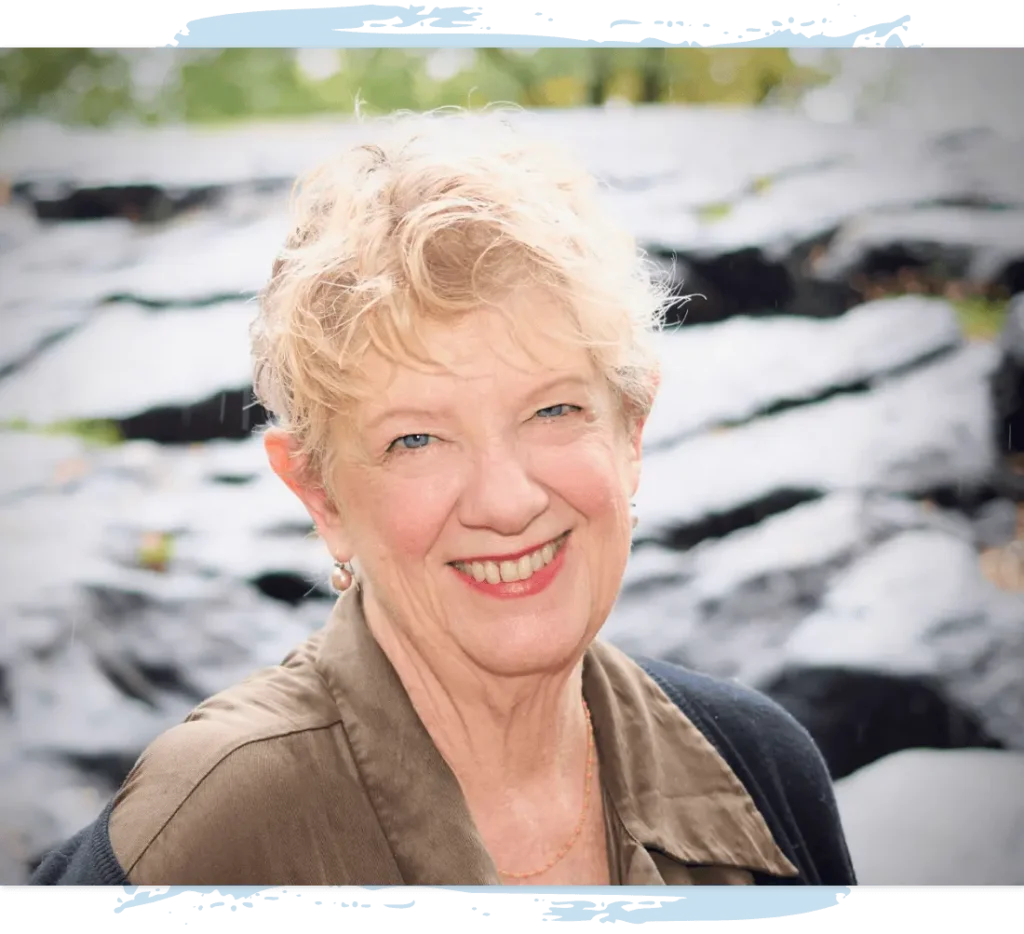What is Jello Brain, and where does the audience enter the story?
Jello Brain, previously known as I’ll Be With You in a Minute, is a one-woman show in the form of an 70-minute piece of theater. As the sole actor, I play myself, my mother, and 8 other characters. The genre is tragicomedy, continuously swishing back and forth between heartbreak and hilarity.
The story starts with the first day my mom is making the transition into memory care from assisted living. Against all odds, I try to make her feel “at home” in such a strange, dystopian environment. Both of us feel especially out of place here because my mom has always been at least 20 years younger than the other residents and is much more physically able than they are. I, too, feel out of place because everyone else’s children who visit are my mom’s age.
The story continues through my navigation of adjusting to her new “home,” doctors appointments (both hers and mine), grappling with the fact that the illness can be genetic and the possibility that I will get it, too, and how to comfort my mom when I, myself, need comfort from losing her in this rare, mysterious way—oh, and my desperate attempt to find a replacement mother figure in someone—ANYONE else, including, but not limited to, sexy neurologists.
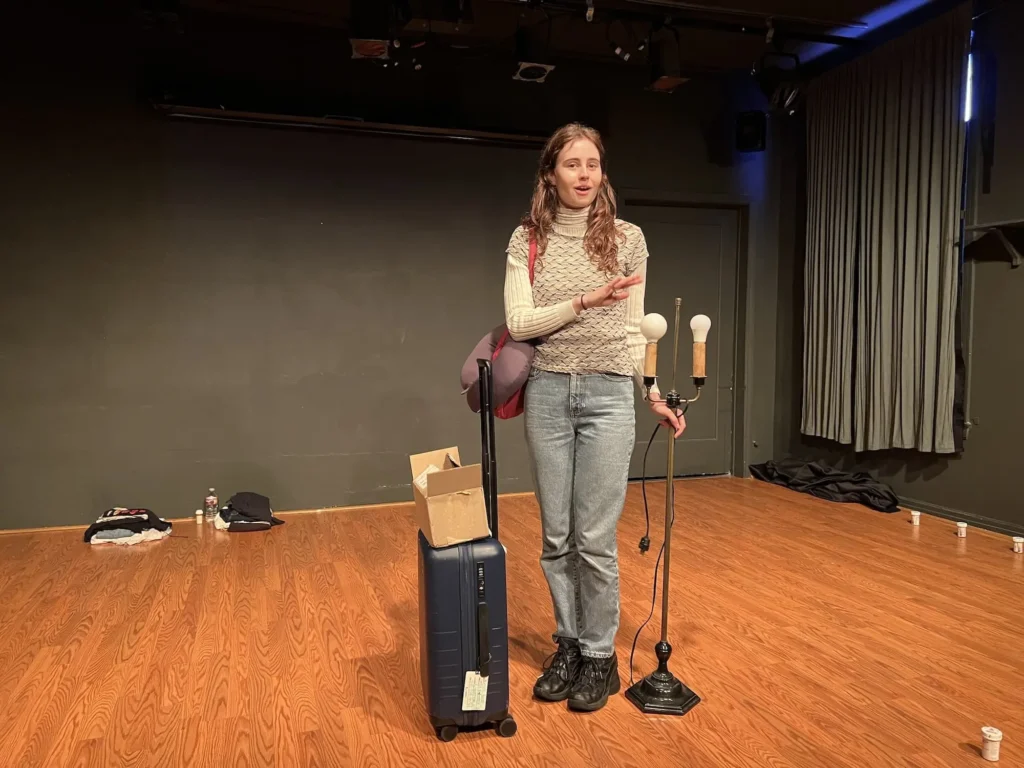
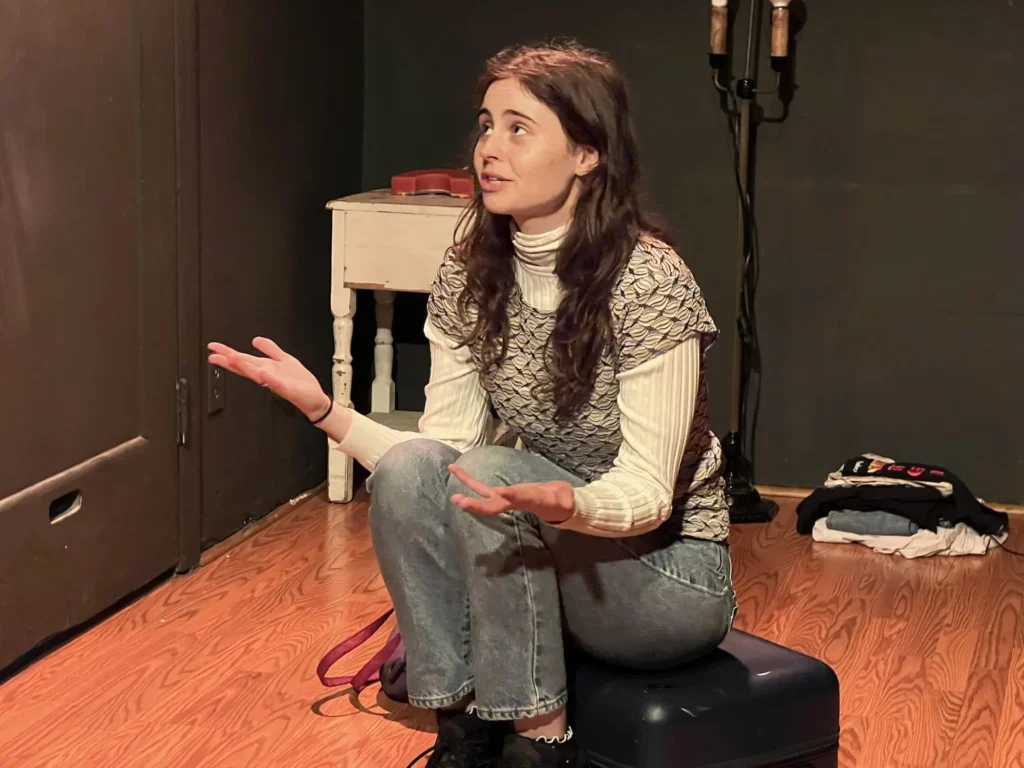
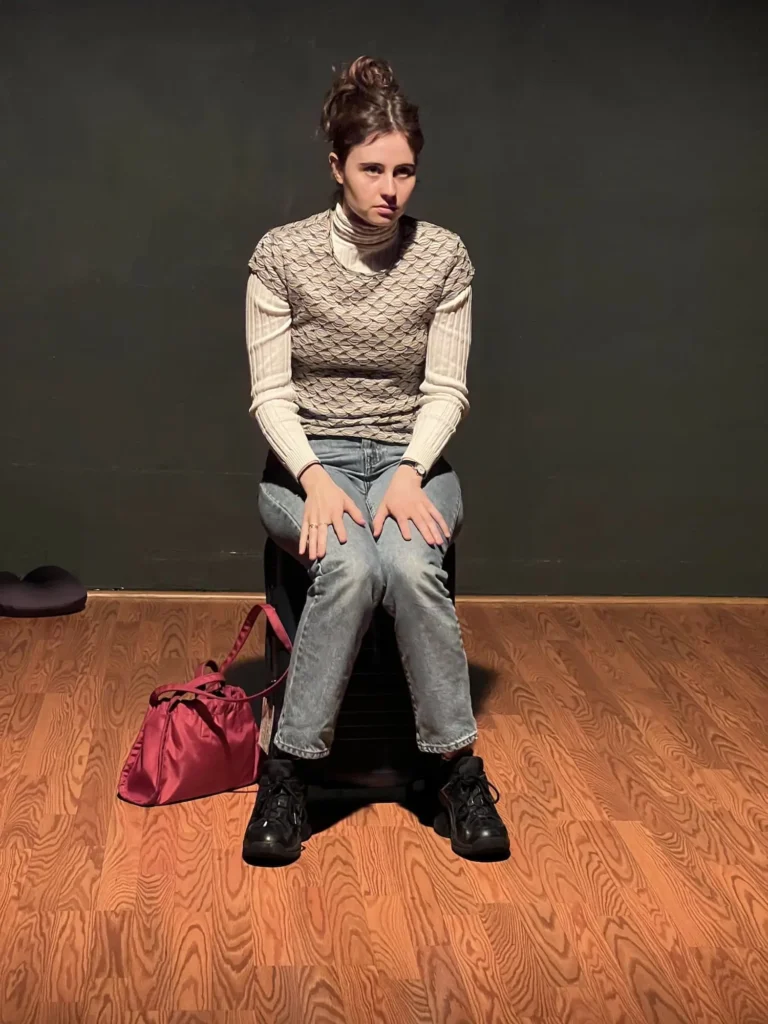
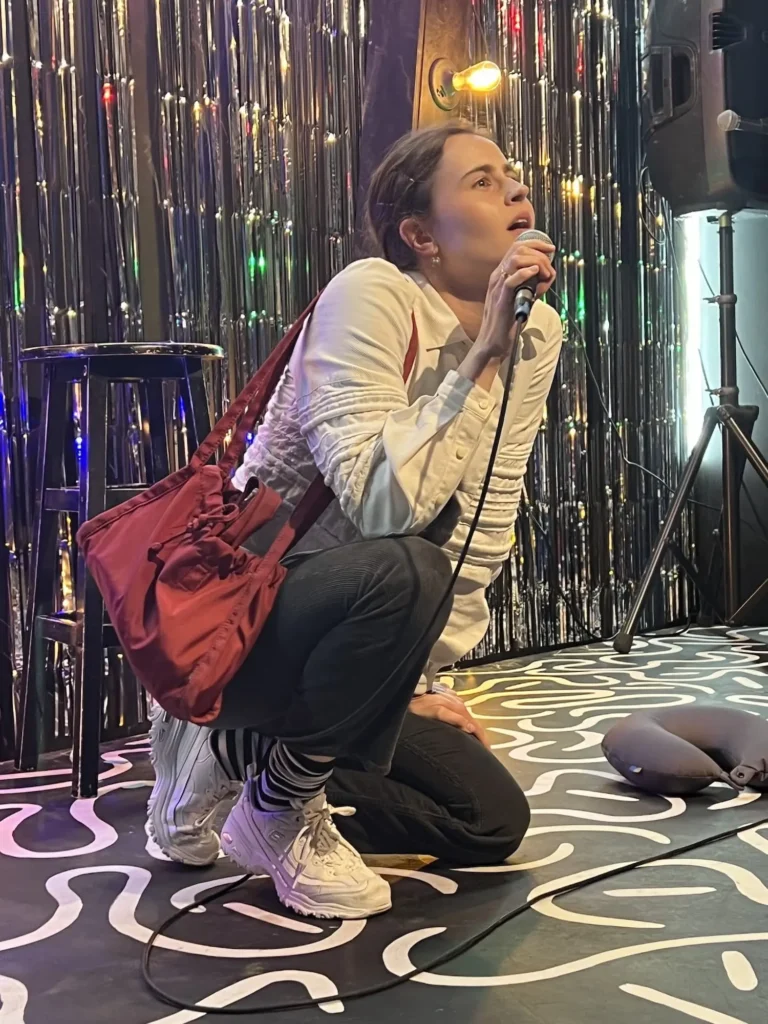
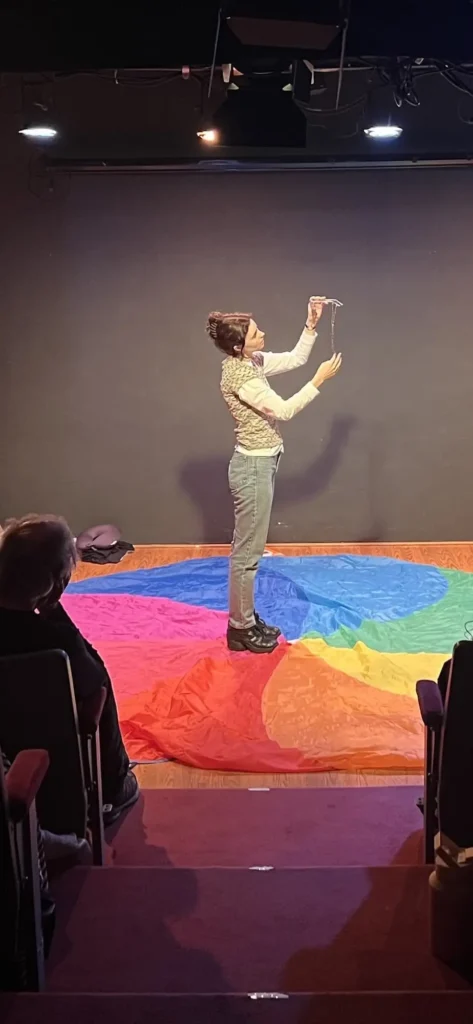
Who initially inspired you to grapple with dementia?
My mother, Cynthia Grove, was diagnosed with early-onset Alzheimer’s disease after her 55th birthday. I was 25, and was her main support/caregiver. I have struggled with difficulties communicating with her. Words don’t have the same power to connect anymore, so I wanted to create this show for her—so she would understand how much I care about and miss her. Even if she didn’t fully grasp what the show was about, she knew it was about her, and was proud.
The worst part of this experience is seeing her disoriented, suffering, and knowing there is little I can do to help. In the pits of my despair, the only thing that has made me feel better was writing this show and feeling like I had a platform to express my experience (and hopefully a little of hers, too). I also felt like creating in the specific medium of theater was the best way to get people to actually listen! Engaging them in a textured story with humor and visuals and various characters allowed for a more gradual approach to the dark and uncomfortable subject matter. With theater, you can’t just turn it off or step away like when confronted with film or other visual arts. You have to sit through the whole show and let it wash over you.
How has working on dementia-related art changed you?
I want to make more pieces about dementia. There are so many beautiful micro moments that are worth sharing. Alzheimer’s disease makes the patient so vulnerable, so dependent on someone else for care, that the toll on the caregiver/loved one is immense. I want to shed light on their plight and make people who are in this position feel seen.
I also wish to showcase all the colors of sublimity and intimacy that occur when someone’s brain is shrinking and they lose function. Seeing it up-close has made me realize how fragile we (and our brains) all are—not just those with dementia. Coupled with the moments of excruciating pain are also moments of beauty and joy. I’ve never felt so close to my mom as when we are both facing the grueling realities of this illness, loving and enjoying each other along the way, both of us stretched to our limits and relying on our mother-daugher connection to light our path forward. Ultimately, my goal is to create a miniseries about this experience of caring for my mom at such a young age.
How has the work been received?
Everyone who has seen it has been really supportive and complimentary. Jello Brain was shown at the Hollywood Fringe Festival with excellent reviews.
I have friends who also care for parents or spouses with dementia, and they were very moved by the show. They said it was a great mix of humor, chaos, deep emotion, and insight into this harrowing yet rarely discussed topic. I also showed it to the staff at the facility where my mom lives, and they all loved it and said that my representation of their community was loving and accurate.
The social worker who leads a support group I’ve attended at Hilarity for Charity, also attended my show and shared it with the whole HFC community!
This work is dedicated to: My mother, Cynthia Grove. If it weren’t for all of her love and humility, I would never have been able to find the courage and wisdom to confront such a difficult topic head-on. She amazes me with her attitude and optimism every day, despite her unimaginable struggles.
Find more from Natalie Grove on Instagram. Stay tuned there to find out about upcoming shows in Los Angeles and the Edinburgh Fringe Festival in July and August, respectively

